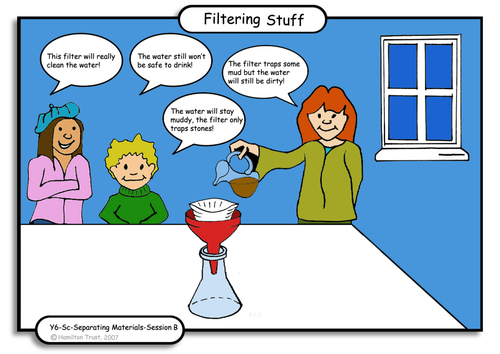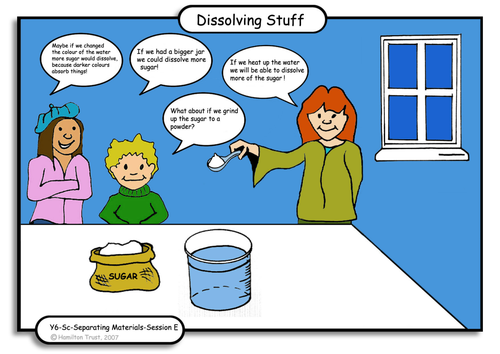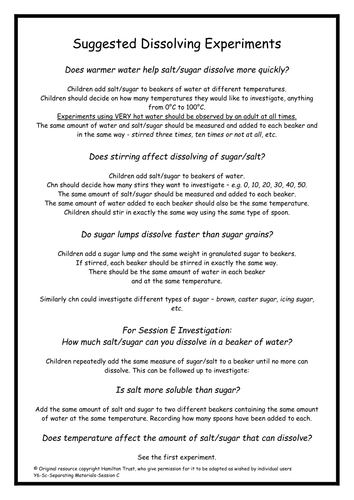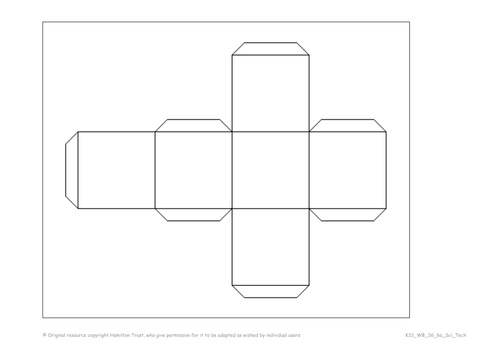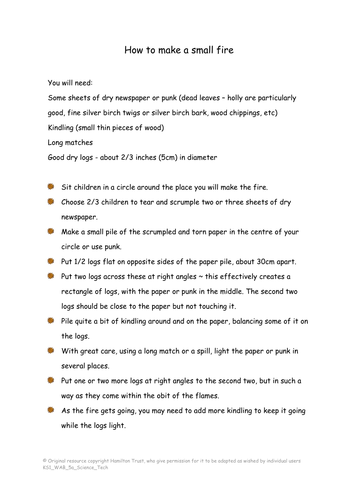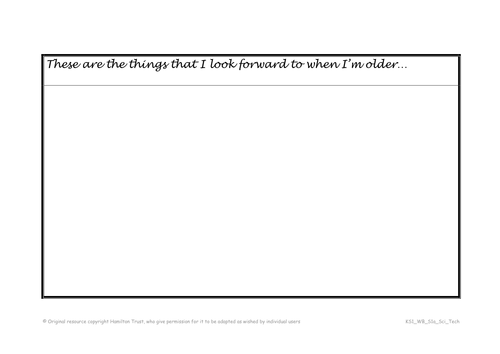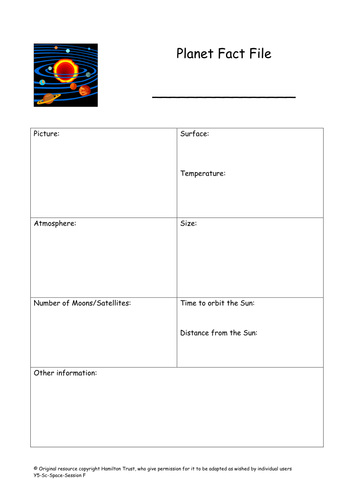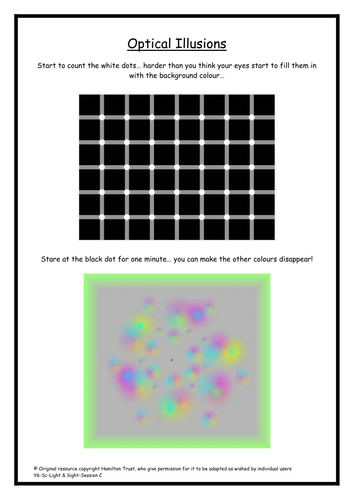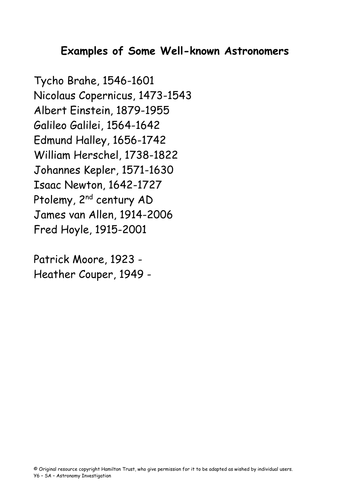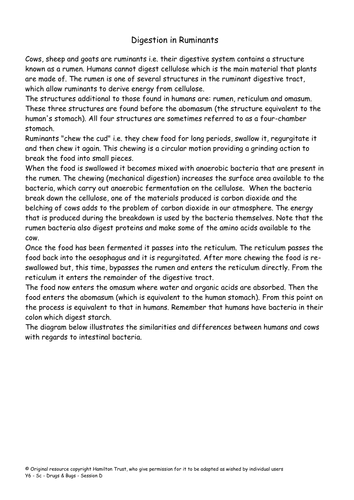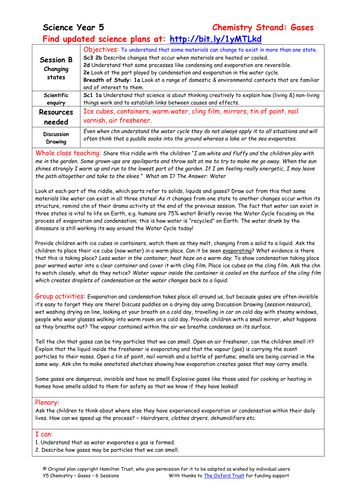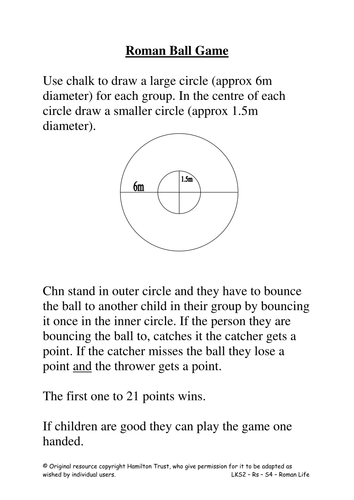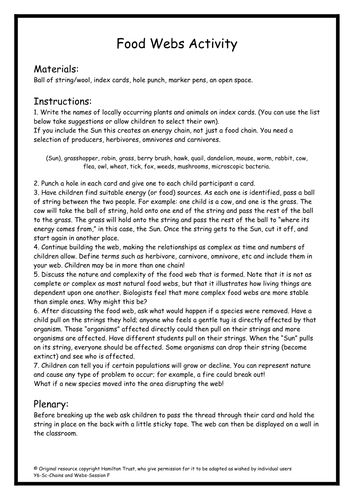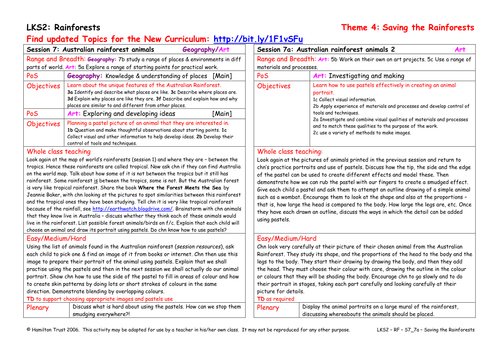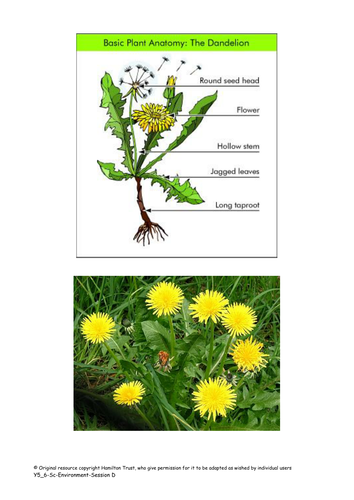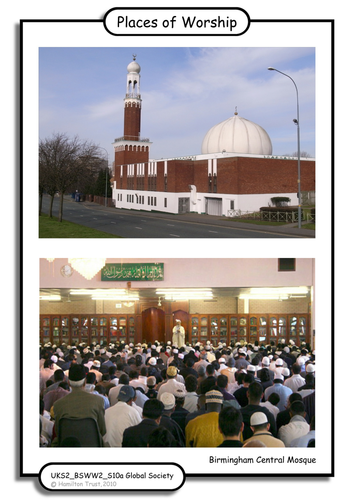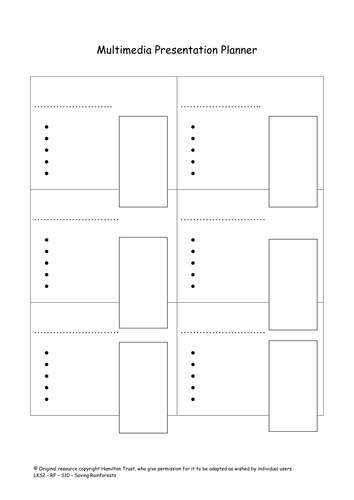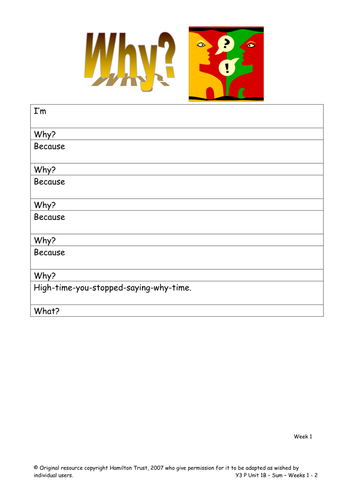
397Uploads
10041k+Views
11644k+Downloads
All resources

Filtering
Things become clearer in this session as children find out that some materials are insoluble creating mixtures when added to water. Children create their own filters to purify water but will it be safe to drink?
Suitable for Y6 pupils.

Investigate dissolving
It’s one lump or two… or even, maybe three or four in this session! Do all soluble materials dissolve in the same way? How much material can you dissolve in water? How can we increase how much material dissolves? Time to find out.
Suitable for Y6 pupils.

Solutions
This session will create quite a stir as the children investigate the factors which affect how some materials dissolve in water. They raise their own questions, devise fair tests and create line graphs to find answers.
Suitable for Y6 pupils.

Make A Box
Moving on from the last session, children explore how boxes are made from nets by taking apart packaging boxes. Then using a pre-prepared net, children make and design their own boxes.

Cooking Food on an Open Fire
Immediately after the war many people cooked on open fires using wood, which was cheap or easy to gather free. Cook some potatoes on an open fire outside for children to taste with butter or cheese. If possible allow children to toast some marshmallows with adults.

Who wants to grow up?
Children continue to explore how our bodies and minds change as we get older and how this might affect us in old age. They go on to explore their feelings and frustrations about wanting to be older.

Planets
In this session children blast off to the far flung corners of the galaxy to find out more about the planets that make up our solar system. They collect data in the form of a fact file used to report back to the rest of the class.
Suitable for Year 5 pupils.

Eyes
Children get an insight into sight in this session. They find out that to see things, light needs to enter the eye, and how their eyes function. They also find out how to care for their eyes and that sometimes eyes can even play tricks on us!
Suitable for Y6 pupils.

Stars and Moon
Find out about stars and how they are grouped into constellations, despite being a long way from each other. Make a simple telescope to study the stars and a planisphere to identify them. Study the phases and apparent movement of the moon.
Suitable for Y6 pupils.

Animals including Humans - Healthy Animals - Year 2
Hatch eggs and study the life cycle of chickens. Build understanding that exercise makes the heart work harder and that it is an essential part of a healthy lifestyle. Find out about healthy lunch box foods before designing and sharing your own snack.
Includes 6 session plans & resources
01 - Hatching eggs!
02 - Babies!
03- Stranded!
04 - Healthy hearts!
05 - Deep inside my lunch box!
06 - Pack a healthy picnic!
Hamilton’s science scheme provides children with a broad but comprehensive experience of primary science that systematically covers all of the National Curriculum for England objectives. Each year group is split into 6 blocks of 6 sessions, each of which can be completed within a half-term. We present them in a recommended teaching order, but you may adapt this to fit your requirements. Working scientifically, investigations and meaningful outcomes are fully incorporated in each block.

Useful micro-organisms
Discuss bacteria living in and on humans and compare our digestive system with that of ruminants. Find out how bacteria help us to recycle waste and make river water safe for us to drink. Visit the Microbe Zoo! Ask 'What does our skin do?' 'Is there life on Mars?'
Suitable for Y6 pupils.

Changing states
Water doesn’t just dry up… it changes state! In this session children investigate how water can exist in all three states and look for evidence of water as vapour, drawing diagrams to explain what is happening. Suitable for Year 5 pupils.

Roman Ball Games For Children
Children explore the life lived by Roman children, rich and poor. They think about schooling and also about their leisure times, comparing the life of children in Roman times with that of children in Britain today. Then they play Roman ball games.
Suitable for years 3 and 4.

Puberty
Session 1 - Look at the physical changes that take place during puberty. Some are seen easily, e.g. growing taller and broader, hair around genitals and under arms, etc. Also discuss menstruation and wet dreams and rites of passage in different cultures on reaching puberty.
Session 2 - Look at the emotional changes in puberty. Use drama to act out typical scenarios involving parents and teenagers; look at the different viewpoints and discuss how compromise can ease situations. Look at the meaning of friendships and where help can be found.
Suitable for Y6 pupils.

Food webs
A wonderful food web is weaved in this session as children create more complex feeding relationships. Through practical activity they discover the impact that subtle changes can have on the whole web!
Suitable for Y6 pupils.

Australian Rainforest Animals 2
In this session children take the image of their Australian Rainforest animal printed in the previous session and use it as a starting point for a pastel picture.

Dandelions
Discussing dandelions! Children raise a question about the dandelions growing in the school grounds before planning and carrying out their investigation. Careful observation and measuring in groups are essential before they draw conclusions. Suitable for Y5/6 pupils.

Places of Worship
One way in which the various religions that are now practised in Britain are noticeable is the building of their places of worship.
Children annotate maps of the local town or city with places of worship or research the places of worship. Add to display.

Multi-media presentation - Saving rainforest
In this session children look at a multi media presentation prepared by you which has some good bits and some that need improving!
Children then use what they have learnt to plan and then start work on their own using notes from previous sessions.

Yr 3 Unit 1B Performance and Favourite poets
Two fun weeks of performing and reviewing poetry. Children read, listen to, write, learn and perform simple ‘conversation’ poems.
They study and discuss a wide range of poems and write a review. A class book of favourite poems is made!

